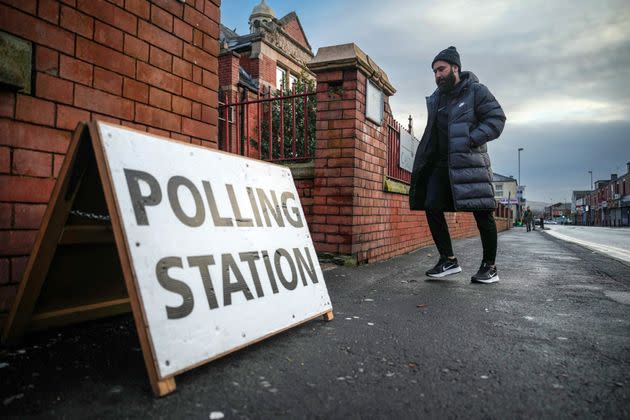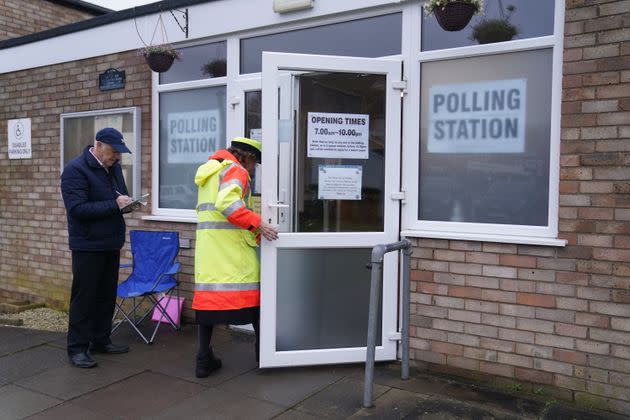Confused About Voter ID Ahead Of The Local Elections? Here's What You Need To Know

With the local elections coming up on May 2, you need to make sure you have some form of accepted photo ID so that your vote counts.
Today is the last day you can apply for free photo ID from the Electoral Commission in time for this batch of elections – they will not be accepting any further applications after 5pm.
But don’t panic, or let this put you off voting – you may already have a form of photo ID which is accepted.
Here’s what you need to know.
What is voter ID needed for?
Photo ID is needed to vote in some elections in England.
That includes by-elections, general elections and recall petitions, as well as local elections and police and crime commissioner elections.
You only need to show one form of photo ID but it does need to be the original and not a photocopy.
What are accepted forms of voter ID?
There are many forms of ID which are accepted.
This includes:
1. Passport
2. Driving licence
3. A blue badge
4. A travel card, including:
Older person’s bus pass funded by the government
Disabled person’s bus pass funded by the government
60+ London Oyster photo card funded by TfL
Freedom pass
Scottish National Entitlement card
60 and over Welsh concessionary travel card
Disabled Person’s Welsh concessionary travel card
Senior SmartPass issued in Northern Ireland
Registered Blind SmartPass or Blind Person’s SmartPass issued in Northern Ireland
War Disablement SmartPass issued in Northern Ireland
60+ SmartPass issued in Northern Ireland
Half Fare SmartPass issued in Northern Ireland
5. Identity card bearing the proof of age standards scheme hologram (a PASS card)
6. Biometric immigration document
7. Ministry of defence identity card
8. National identity card, issued by EEA state
9. Electoral identity card issued in Northern Ireland
Even photo ID which is out of date is still accepted, as long as it still resembles you and the name on it is the same one you used to register to vote.

What if you don’t have any of these?
Do not worry if you do not already have a form of photo ID, if your old one no longer looks like you or if there’s another detail on your ID which you do not identify with – you can get a free ID through the Electoral Commission.
But, you only have until 5pm today to apply for one if you want it in time for the local elections.
You will need a recent, digital photo of yourself and your National Insurance number (or other documents to prove your identity if you don’t have one of these).
Then apply on for a Voter Authority Certificate on the Electoral Commission website.
What if you want to vote anonymously?
If you wanted to vote anonymously in the May 2 local elections, you have already missed the deadline (it was Tuesday, April 16).
Registration for anonymous voting also only last a year, so you have to reapply each time.
But, you may want to do this ahead of the upcoming general election.
If you think your name and address being on the electoral register may impact your safety – or someone else in your household – you can vote anonymously so your details are not on the electoral register.
Apply for an anonymous elector’s document by providing your name, address, date of birth, a photo of yourself, and National Insurance number.
You can still apply if you don’t have a National Insurance number but will need to offer alternative proof of your identity, such as a bank statement, utility bill or birth certificate.
You can also ask someone who knows you to confirm your identity to the electoral services team.
Find out more about how you vote anonymously on the Electoral Commission website.
Why did the government introduce voter ID?
The government introduced compulsory voter ID for the first time back in May 2023, for the local elections in England.
It was intended to prevent voter fraud and protect democracy.
However, campaigners and opposition parties say it was introduced as a form of “voter suppression” because those without the appropriate ID would not be counted.

